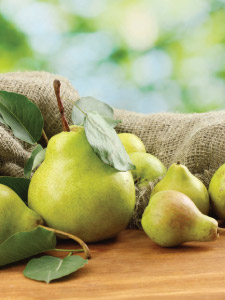Soil & Sea: reports from our producers
This article was originally published in August 2013

The Northwest pear crop is forecast to be 2 percent higher than last year — 19.8 million 44-pound boxes. Growers forecasted a larger increase, but the crop was hindered by poor pollination.
Northwest cherry growers reported significant losses due to May rainstorms followed by heat. Early varieties such as Chelan and Tieton especially were affected, while higher-elevation varieties such as Sweetheart and Lapin fared better.
Farmers in the nation’s largest onion-growing region (Idaho and Eastern Oregon) worry proposed federal rules governing the cleanliness of water will threaten their livelihood. The rules focus on the amount of E. coli bacteria allowed in water that directly contacts produce during or after harvest. Farmers say the bacteria limit is unattainable.
With Canadian boats barred from fishing off the U.S. West Coast for the first time last summer, U.S. albacore fishermen landed almost 15,000 tons of fish, their best catch in more than 10 years. The United States is allowing 45 Canadian boats to fish in U.S. waters this summer. Since the collapse of the B.C. salmon troll fishery, the number of Canadian trollers targeting tuna has grown almost 10-fold.
The sustainability certification of the Alaskan chum salmon fishery is in shambles. Fed up with the growing power of the Marine Stewardship Council (MSC), most Alaska salmon processors signed on to have their fishery certified to the FAO’s Responsible Fisheries Management (RFM) criteria instead of seeking MSC certification.
Alaska processors reportedly are happy to be out from under MSC’s yoke, but sustainable seafood NGOs say the new certification does not mean the Alaska salmon fishery is certified to be sustainable.
